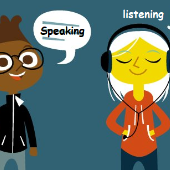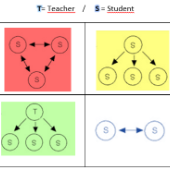
To give clear, simple and short instructions.
Beginning, Middle, End
- T. starts the class by asking ss about their classroom objects (topic previously studied) and the number of objects they have. - T asks Ss two questions: What’s there in your bag? - Then, T asks Ss to show and mention the objects they have in their bags and desks. - T asks Ss to count the objects by asking: - “How many … do you have? (colours, pens, pencils etc.)
Video beam, computer, board, flashcards, photocopies, scissors, glue.
Present Perfect simple, yet, already, still.

To activate previous knowledge.

Students should have described people and used adjectives in a correct way. Additionally, they should have had vocabulary to describe personality and physical appearance.
By the end of the lesson, students will be able to talk about the impact of sleeping.
Learners have recently discussed about the lesson plan components and in the next stage we will analyse and give examples of each component.
Assumptions
Subsidiary aim
Procedure: Activity Description
Timetable fit
Integrated skills
Materials / Teaching aids
Language focus
Main/ Lesson objective
Stages
Anticipated problems and possible solutions
Personal aim
Interaction patterns